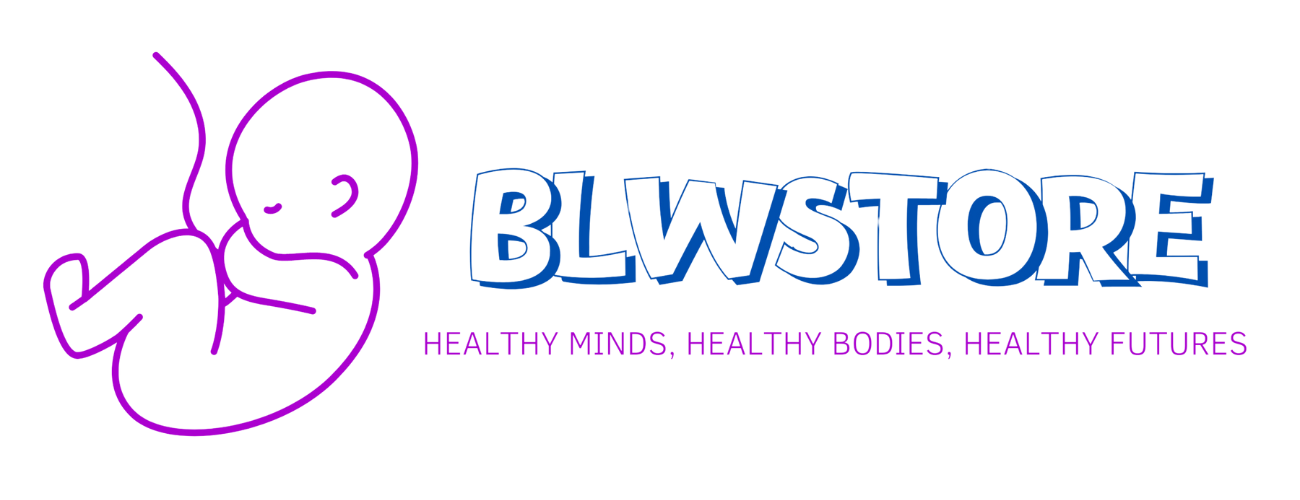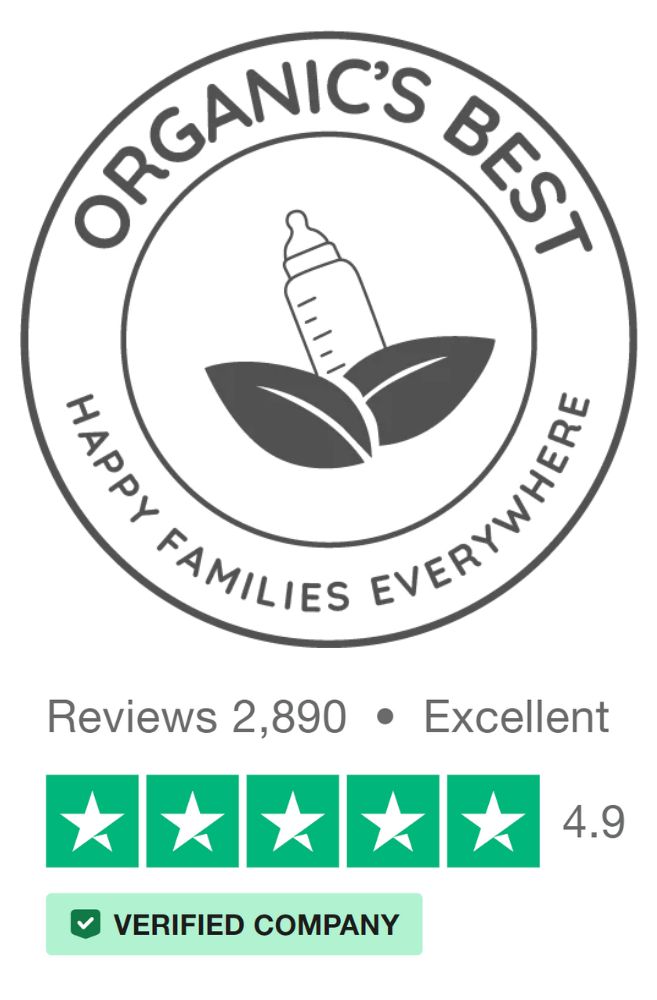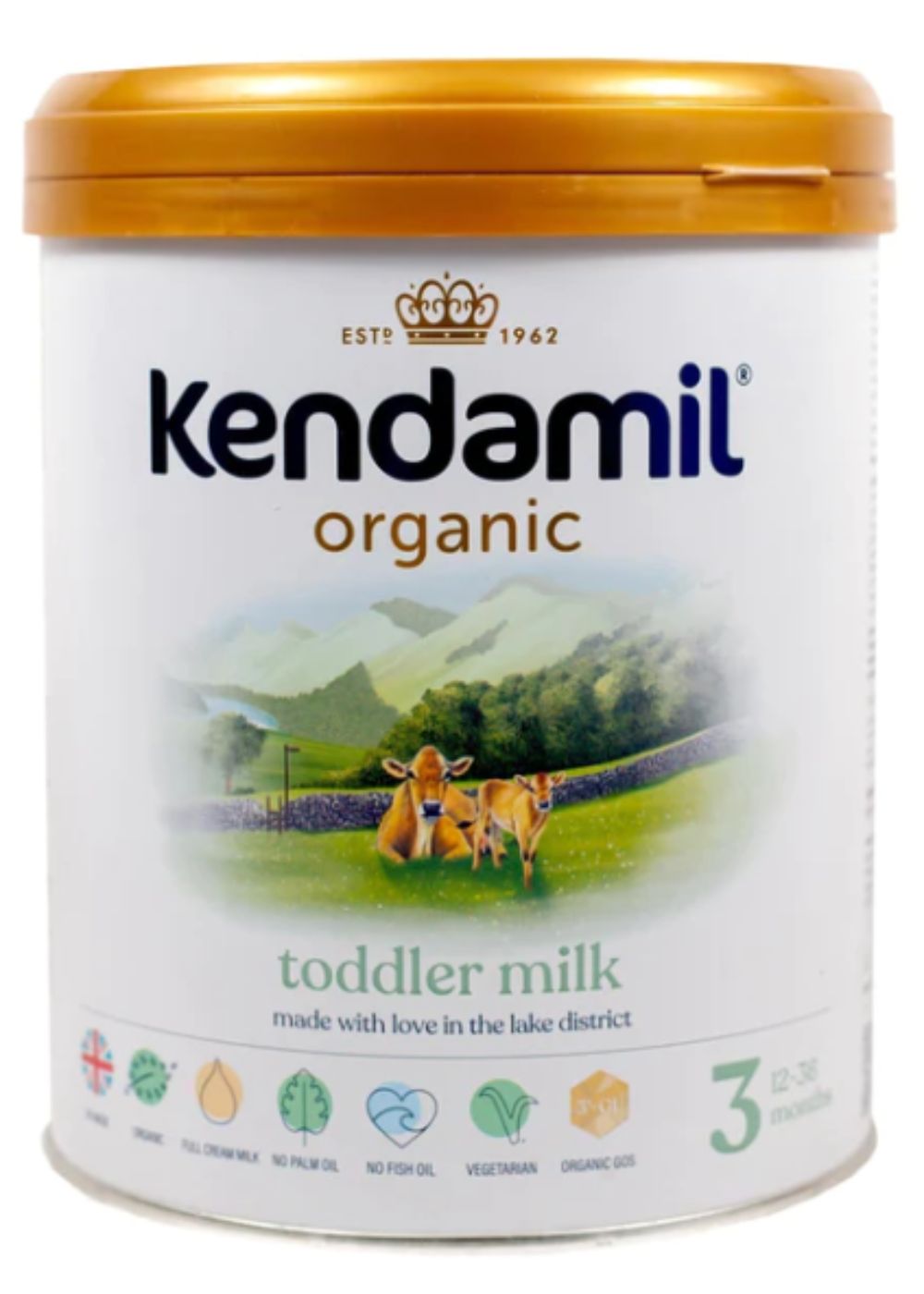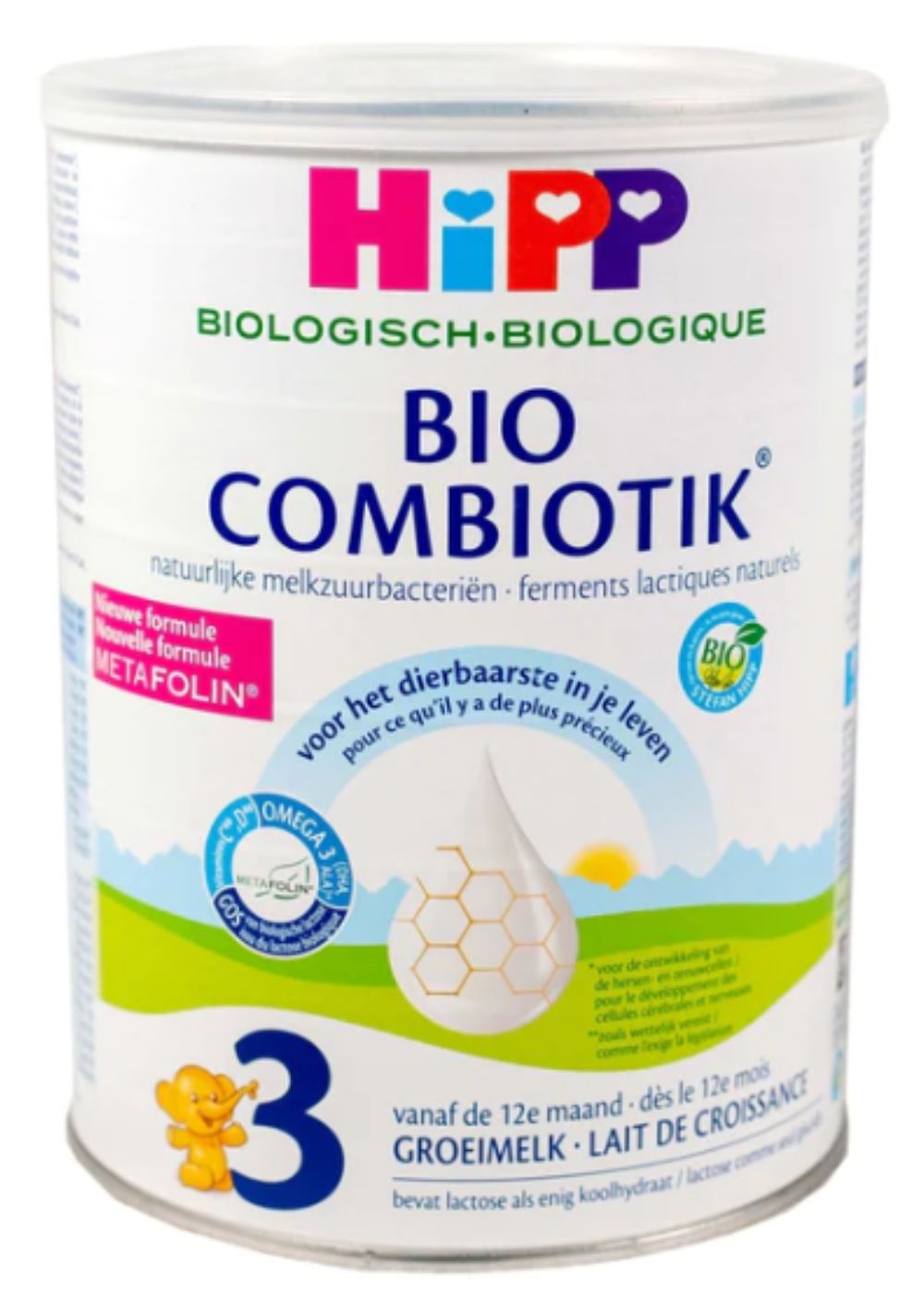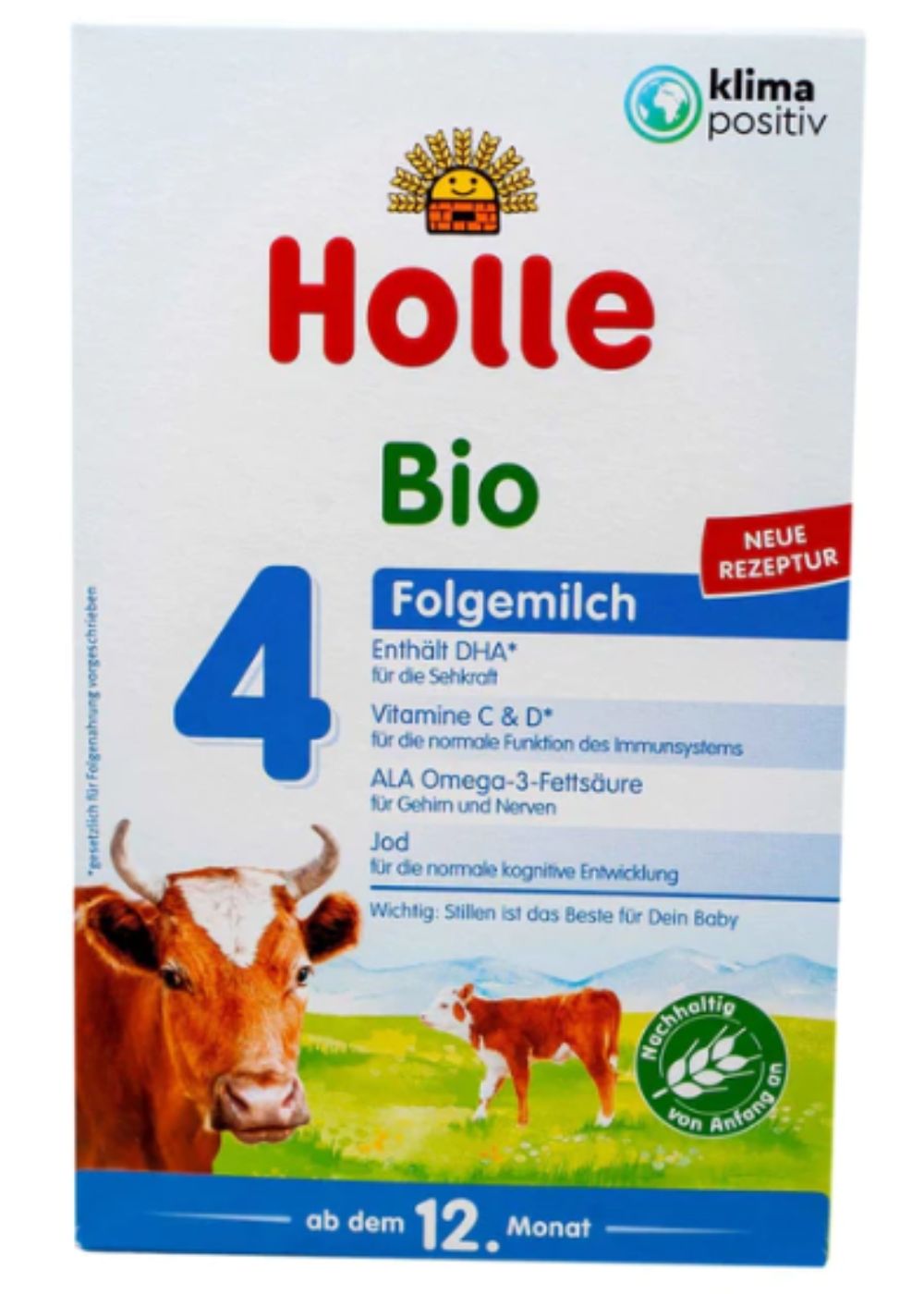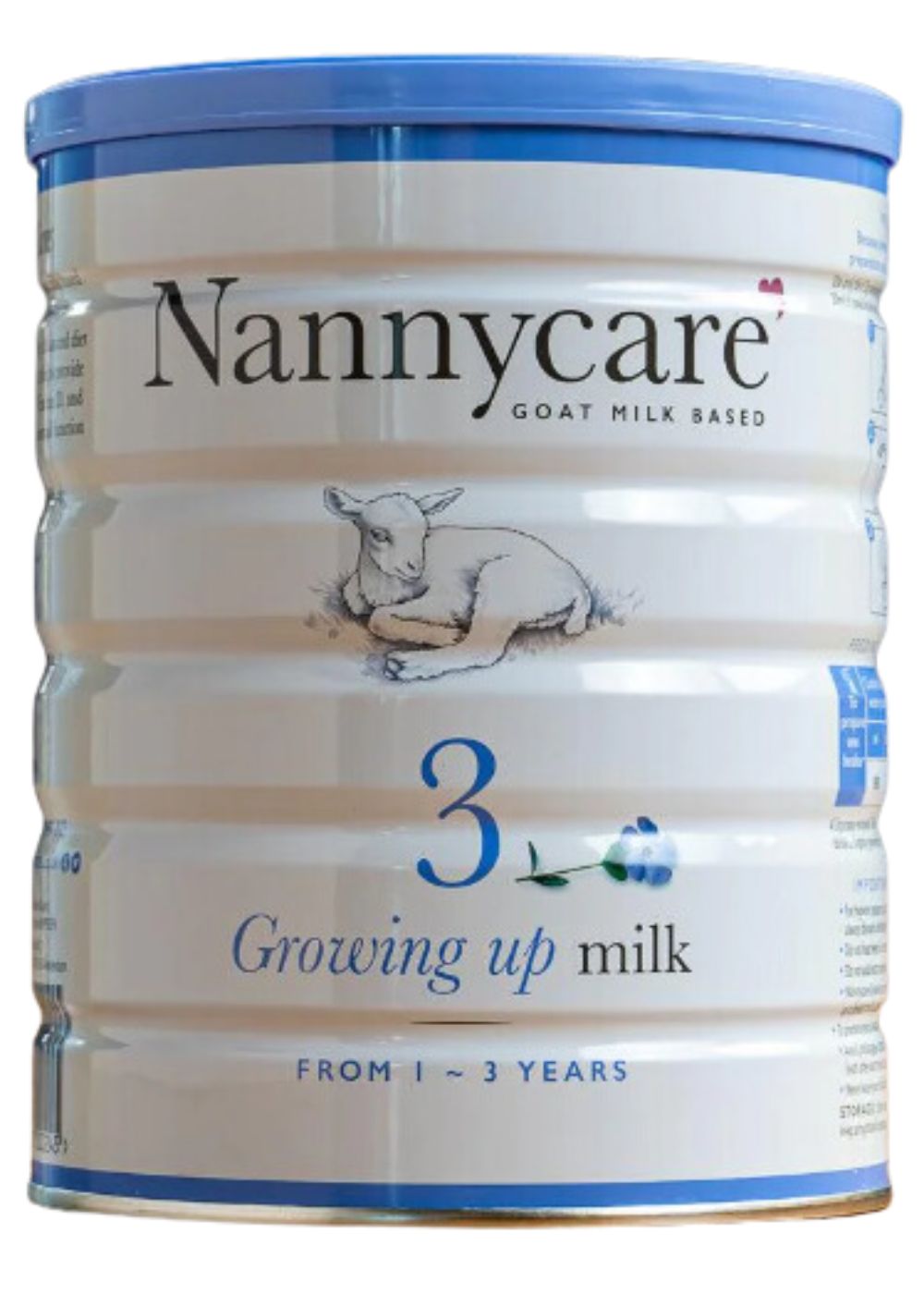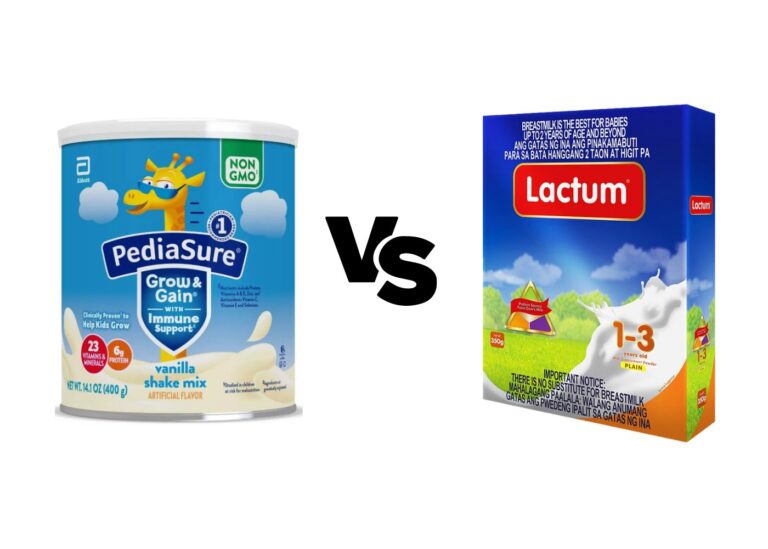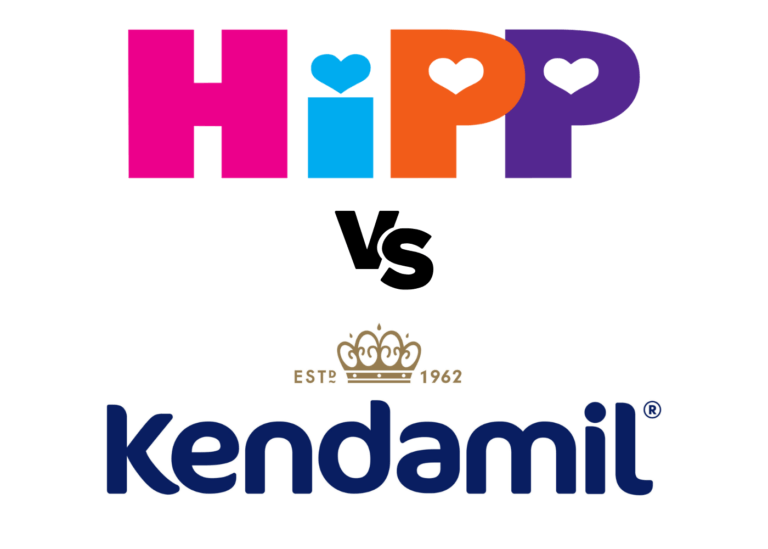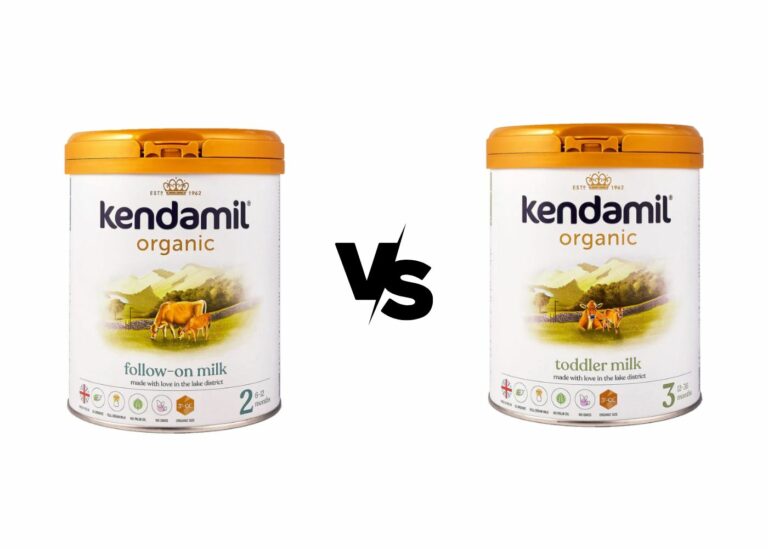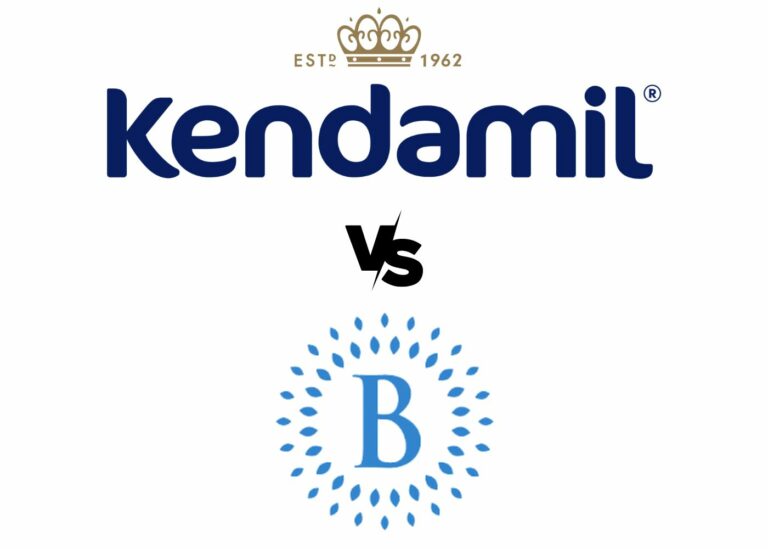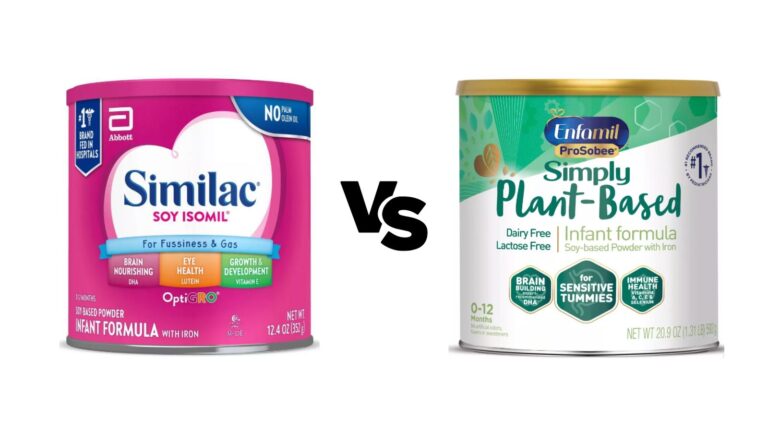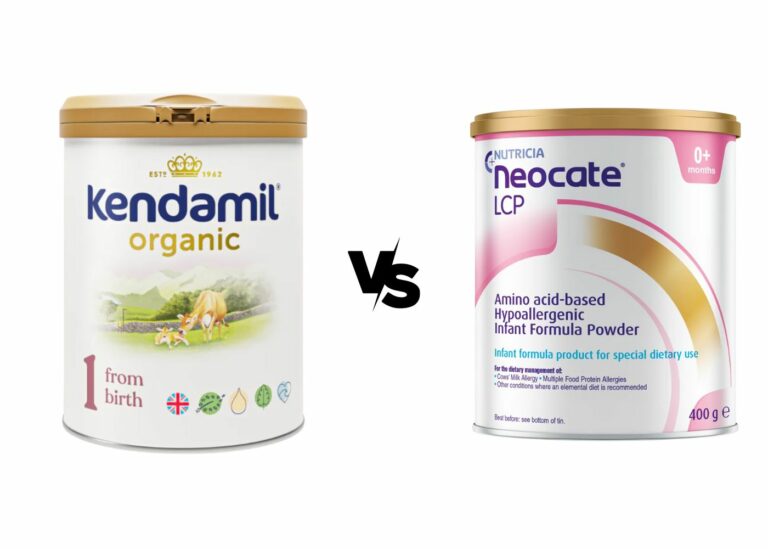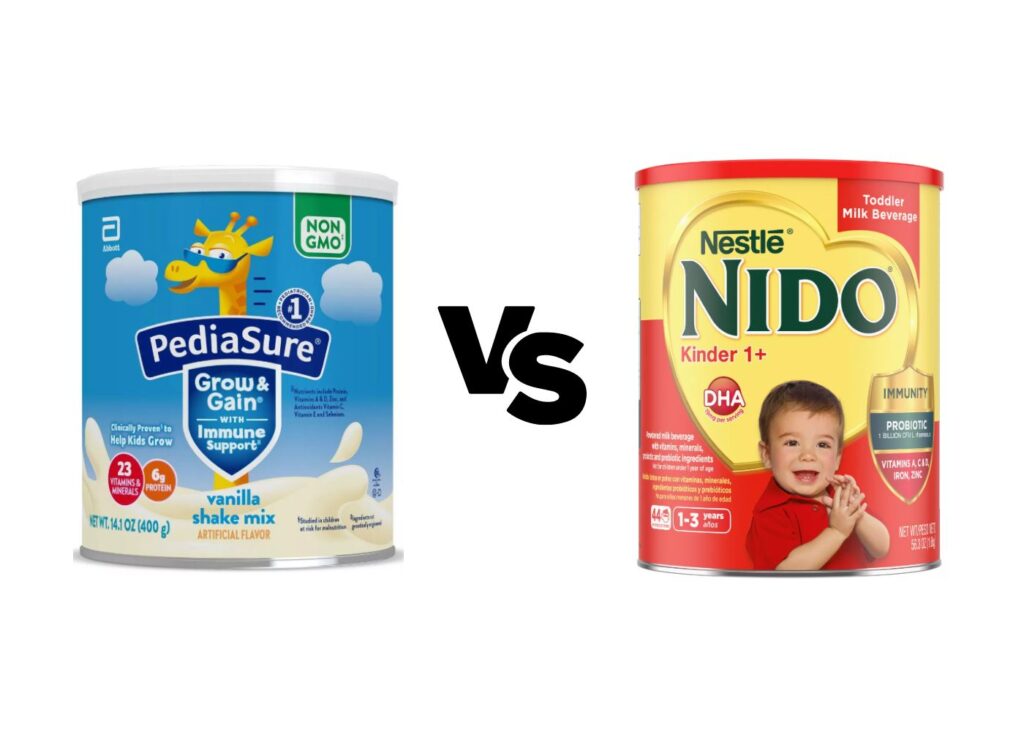
Key Differences Table Between Pediasure and NIDO
| Features/Aspect | Pediasure | NIDO |
|---|---|---|
| Primary Protein Source | Milk protein concentrate and soy protein isolate | Skimmed milk and demineralized whey |
| Carbohydrate Source | Corn maltodextrin and sugar | Maltodextrin and honey |
| Fats and Oils | Blend of vegetable oils, MCTs, and tuna oil for DHA | Vegetable oils, milkfat, and fish oil for Omega-3 DHA |
| Ease of Digestion | Suitable for lactose-intolerant kids | Gentle on the stomach with hydrolyzed protein |
| Prebiotics and Probiotics | None | Includes prebiotics (fructooligosaccharides and inulin) and probiotics (Lactobacillus rhamnosus) |
This article will compare two popular toddler formulas: Pediasure and NIDO.
We will analyze their ingredients and nutritional composition to help you choose the best one for your toddler.
Let’s get after it!
Related reads: Enfagrow vs NIDO | Enfagrow vs Pediasure
Our Short Answer
After analyzing both formulas, NIDO is the winner for the following reasons:
- Its protein sources are more natural and easier to digest on paper
- It uses honey instead of simple sugar, a more natural option
- It has prebiotics and probiotics and Pediasure has none
Having said this, we strongly encourage you to learn about the alternatives below, which are the ones we actually recommend.
With over 100,000 orders delivered globally since 2019, Organic's Best offers clean, safe, and nutritionally rich formulas and snacks.
Free shipping over $100, commitment to freshness and authenticity.
- Express delivery in 2 to 5 business days
- Sourcing from European manufacturers
- Minimum shelf life of 6 months
- Climate-Controlled Warehouse
Give your little one the best start.
CODE 'BLW' for a 5% discount in all orders
Overview of the Two Formulas
Pediasure supports kids’ growth with 23 vitamins and minerals, including immune-boosting nutrients, and suits lactose-intolerant children.
NIDO focuses on toddlers with 13 vitamins and minerals, probiotics, and Omega-3 DHA for brain and digestive health, targeting ages 1-3.
Pediasure
Pediasure Grow & Gain is built to help kids who might not get enough from their diet alone.
It contains 23 vitamins and minerals, including 7 key nutrients to boost the immune system.
This includes protein for muscles, vitamins A & D, zinc, and more. It has no GMOs and doesn’t have artificial growth hormones.
Plus, it works for kids who are lactose intolerant (but not for those with galactosemia).
You can mix it with water or even throw it into a smoothie.
NIDO
NIDO takes a slightly different approach.
Their Kinder 1+ Toddler Milk Beverage contains 13 essential vitamins and minerals to help your toddler grow strong.
It also packs in a probiotic for good digestive health, Omega-3 DHA, and iron for brain development.
What sets NIDO apart is its focus on providing a well-rounded nutrient profile that includes vitamins A, C, D, iron, and zinc for immunity.
It’s simple to prepare—mix with warm water—and is designed for toddlers aged 1-3 years.
Nutritional Composition
NIDO uses skimmed milk and whey for gentle, complete protein, while Pediasure opts for milk protein concentrate and soy isolate, which may be less bioavailable.
NIDO sweetens with honey, offering a healthier carbohydrate option than Pediasure’s sugar.
For fats, NIDO’s blend, including milkfat and fish oil, supports brain development more naturally than Pediasure’s mix of vegetable oils and MCTs.
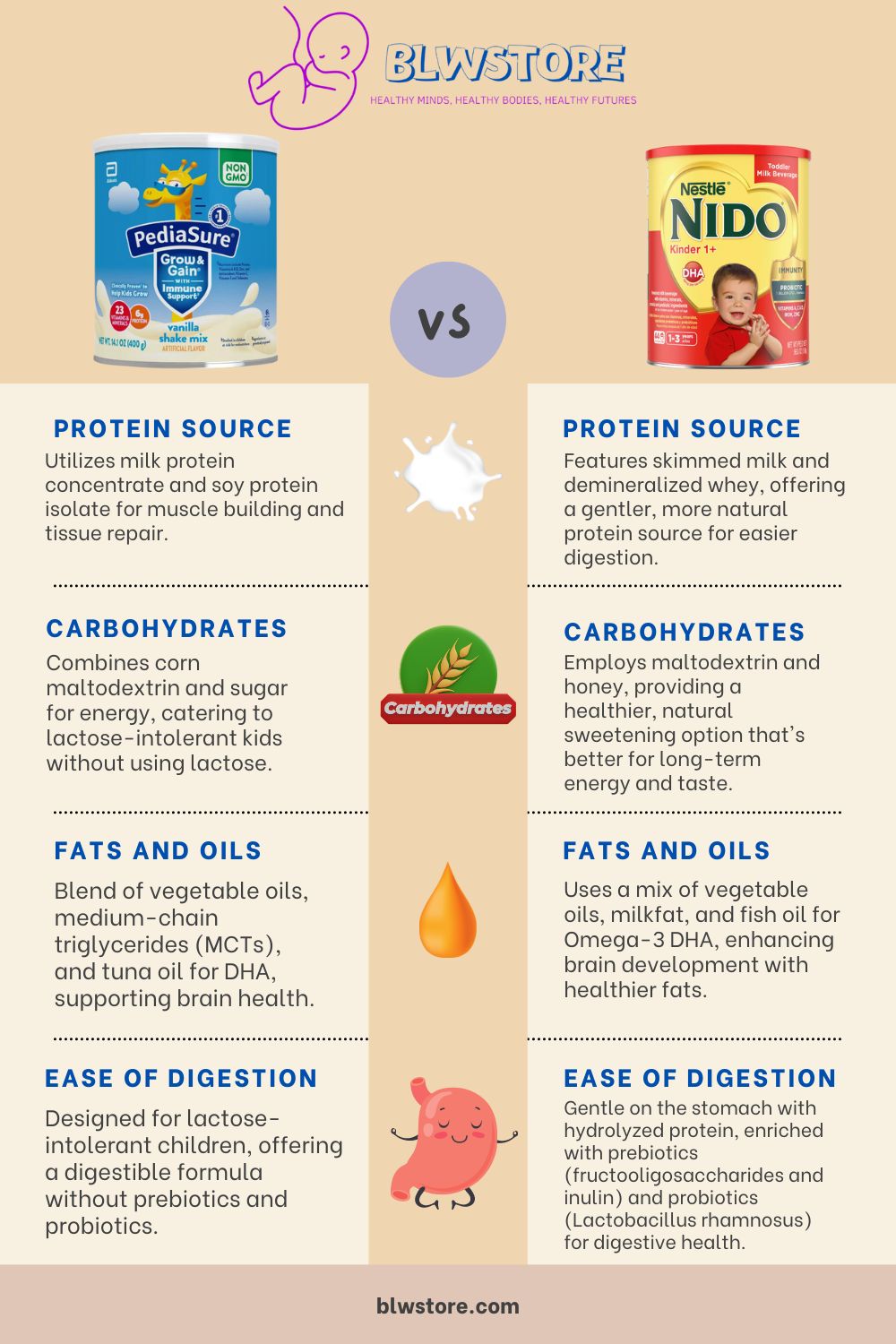
Protein Content
Protein is crucial for building muscles and repairing tissues in your child’s body.
Pediasure: Pediasure uses milk protein concentrate and soy protein isolate to ensure your little one gets what they need.
NIDO: NIDO includes nonfat milk and demineralized whey as primary protein sources.
NIDO opts for a more complete protein blend than Pediasure, leveraging skimmed milk and demineralized whey for their natural qualities and gentleness on the stomach.
In contrast, Pediasure relies on milk protein concentrate—a processed form where proteins are extracted from milk—and soy protein isolate.
The latter, being plant-based, typically offers lower bioavailability than animal-based proteins, potentially making NIDO’s blend more favorable for young tummies.
Carbohydrate Content
Carbohydrates are essential for energy to fuel your child’s active days, supporting them in play and learning activities. They must be high quality and easy to digest.
Pediasure: Pediasure includes corn maltodextrin and sugar to provide that energy. It does not have lactose, so kids sensitive to lactose can still drink it.
NIDO: NIDO features maltodextrin and a bit of honey in its carbohydrate profile.
There is a small but important difference in carb content. Both use maltodextrin, which is better than syrup solids, but Pediasure uses table sugar, while NIDO adds a bit of honey for extra sweetness. This is a much better alternative in the long run than simple sugar, so NIDO also wins the carb battle.
Learn more: Maltodextrin in Formula
Fats and Oils
Fat is key for brain development, absorption of vitamins and minerals, and gives energy.
Pediasure: Pediasure uses a blend of vegetable oils, including high oleic safflower oil, soy oil, medium-chain triglycerides, and tuna oil, as a source of DHA, which is important for brain health.
NIDO: In NIDO, fats come from vegetable oils (corn oil, canola oil, palm oil), milkfat, and fish oil (tuna), which also supply Omega-3 DHA, which is crucial for brain development. This blend ensures your toddler gets healthy fats that support growth in all areas.
Pediasure incorporates MCTs alongside less favored soy oil and high oleic oil, while NIDO utilizes milkfat in addition to palm and corn oil, which are also not ideal.
However, NIDO’s inclusion of milkfat and absence of soy oil tilt the balance in its favor.
Ultimately, we find these considerations to be more critical, leading us to lean towards NIDO for its fat composition.
Prebiotics and Probiotics
Both probiotics and prebiotics play crucial roles in your child’s health, especially regarding digestion and immunity. Let’s see how Pediasure and NIDO stack up in this department.
Pediasure: Does not prominently mention the inclusion of prebiotics or probiotics in its formula.
NIDO: NIDO includes prebiotics (fructooligosaccharides and inulin) and probiotics (Lactobacillus rhamnosus) to support digestive health and enhance immunity. This addition can help foster a healthier gut environment for toddlers.
Best Places to Buy Pediasure and NIDO


Pediasure
NIDO
What are the Best Alternatives to Pediasure and NIDO?
If you want a high-quality toddler drink, we recommend choosing an organic toddler formula with lactose and without additives, cheap or unnecessary ingredients like syrups, sugars, maltodextrin, etc.
Below you’ll find the toddler formulas we always recommend, being the ones we would use for our own child:
Kendamil Stage 3: This formula stands out because it uses whole milk, providing natural fats beneficial for brain development. Kendamil Stage 3’s use of whole milk closely mimics the fat composition of natural breast milk, making it an excellent choice for parents focused on natural feeding.
Kendamil Organic Formula Stage 3 is designed for toddlers 12+ months, offering essential nutrients from 100% organic cow's milk without additives. It's EU Organic Certified, ensuring a high-quality, healthy choice for your baby.
- 100% Organic Cow's Milk
- Rich in Vital Nutrients
- Free from Unwanted Additives
- EU Organic Certified
- Environmentally and Health-Conscious
Hipp Dutch Stage 3: Known for its quality ingredients, Hipp Dutch Stage 3 includes both prebiotics and probiotics. This addition ensures your toddler gets a balanced gut flora, supporting overall digestive health and immunity. It’s an excellent choice for parents who value digestive health support in their child’s formula.
HiPP uses probiotic lactic acid cultures cultivated from real breast milk to make a natural formulation that aids with your baby’s digestion. Stage 3 is designed with less lactose and doesn't contain whey, starch, or maltodextrin.
- EU organic certified
- No artificial sweeteners or GMOs
- Enriched with prebiotics & probiotics
- Lactose only, no starch
- Contains ARA (Omega-6) & DHA (Omega-3)
Holle Stage 4: If purity is your priority, Holle Stage 4 might be what you’re looking for. It holds a Demeter certification, implying it meets strict biodynamic farming standards. Holle’s commitment to using the purest ingredients without any chemical processing makes it an appealing option for parents who want the best organic choice for their toddlers.
Holle Stage 4, for ages 12 months to 3 years, complements breastmilk with organic ingredients, supporting brain development and digestion with nutrients like DHA, iron, and Vitamin D.
- Demeter certified organic
- NO artificial sweeteners, flavors, GMOs or preservatives
- Gluten and soy free
- Short ingredients list
- Filling
- Contains DHA (Omega 3) & ARA (Omega 6)
Nannycare Stage 3: This formula has quickly become our top pick. Crafted from goat milk, it’s often easier on little ones’ stomachs than formulas based on cow’s milk. Packed with natural goodness essential for growth and development, it’s perfect for toddlers with a bit of a sensitive tummy or those who don’t quite agree with cow’s milk. This gentle formula could be the soothing solution you’ve been searching for.
Nannycare Stage 3, from 12 months, complements breastmilk with full cream goat's milk, free from palm oil and maltodextrin, supports digestion, and is rich in Omega-3 (DHA), vitamins, and minerals for growth.
- Whole goat's milk
- Low-allergen milk protein
- Free of palm oil, whey, maltodextrin, and soy
- Contains DHA (Omega-3)
- Rich in vitamin C, D3, calcium, and iron to support growth and development
Last Words
We hope this comparison between Pediasure and NIDO helps you choose the best toddler formula for your kid.
Remember to learn about the alternatives before making a purchasing decision.
If you have any questions, please leave a comment or contact us at [email protected]
Happy feeding!
We’re Maria and Alberto, a married couple and educators who are nutrition enthusiasts. Even before we had kids, we were already crazy about nutrition.
We’d read scientific articles, watch videos from nutritionists, and spend hours listening to nutrition podcasts.
Today, we continue doing this, but in a different way, as we’ve learned to sift through the noise and trends. Nutrition, like any other field of knowledge, the more you read and learn, the more you develop a comprehensive understanding of reality, and that’s what has happened to us.
Before having our first child, we focused on learning everything we could about child nutrition, using the same techniques we had already employed, backed by our extensive knowledge in nutrition.
Our mission is to help other parents with their children’s nutrition, to help them become the best versions of themselves.
If we are what we eat and drink, which is absolutely true, let’s do it right!
